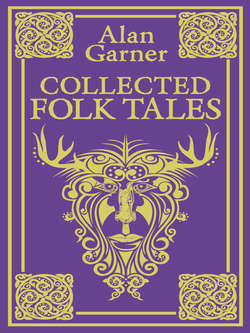Читать книгу Collected Folk Tales - Alan Garner, Alan Garner - Страница 17
Оглавление
e was the finest hunter, the greatest fighter, the swiftest runner, of all the tribes of the Algonquin. She was the most beautiful, the most skilful, the boldest maiden.
He could summon chieftains’ daughters. She was beloved of warriors.
He wooed her. She mocked him.
She told all who listened of how he had come to her, humble, gentle, naked in his heart. The squaws cackled, and the braves jeered, and he lay in his tent and dared not show his tears. The tears chilled his soul.
It was the time for the tribe to move north for the Summer. They broke the Winter camp, and the village was bustle and noise, but still he lay in his tent and would not come out, nor would he speak. So they took the tent from over him, and left him alone on the prairie, while they went north after the deer and the buffalo.
When there was only the level sky to see him, and the silence to hear him, he moved about among the ashes of the dead fires, and the patches of earth, and the forsaken rubbish, gathering a broken bead, a scrap of rotted leather, a twist of rag, a spoilt headdress; and he took them to a sheltered place among the rocks, where some of the Winter’s snow still lingered. He gathered the snow, and heaped it, as the village children did, and trimmed it and smoothed it, and rounded a head, and put in stones for eyes and nose and teeth. Then he stuck the bits of rubbish here and there about the snow, and when he had finished he sang a song.
The tribe watched him come into the camp one cold dawn a week later. He had travelled through the nights to be with them, and by his side was a tall and fierce warrior, a young chieftain of the Cree by the marks on feather and skin. The name of this warrior was Moowis.
She looked on the chieftain, and loved him. Her mother offered the hospitality of their tent, but Moowis said that he was on a journey of hardship and that he must sleep out in the open, with no cover from the frosts of Spring. So she spent her days in pursuit of a chieftain’s love, and left him to the stars at night. And she soon came to her desire, for Moowis took her for his bride.
Yet still she could not bring the chieftain to the tent. “When we reach home, my home,” said Moowis, “we shall share everything. Until then, be patient,” and he gave her a glittering smile.
The Cree lands were further to the north than the tribe hunted, and Moowis seemed anxious to travel fast, so the new bride and groom took their leave, and her old love, the spurned one, was the last and gayest in the parting.
Moowis urged the way north, and would not allow for her softer strength, and he kept to shadows by day, and made most speed by night. She went with him on bleeding feet, uncomplaining at the hurt, as a chieftain’s wife should. She endured the edges of the rocks and the thorns of the woods when they came to the northern mountains. She planned the fine clothes she would wear, and the dressing of her tent, and was happy with Moowis, her lord and her love.
On the last day, the sun rose in a clear sky. The first scents of growing were in the air, and she followed Moowis up a long cliff path, with neither shade nor shelter. The straight back of her husband, which she had never seen bend in all their journey, went before her. His chieftain feathers were proud.
Yet there was something.
His body he pressed to the cliff, and for all his strength, there was less speed to his pace. She could keep with him easily. The doeskin across his shoulders sagged, the sleeves wrinkled, the legs were slack. And in the growing warmth of the sun dark patches spread like sweat.
“Have you the fever?” she said.
But Moowis did not speak again. He stopped, the headdress fell, and she crouched alone, the chieftain’s bride, on the mountain path, over a puddle of melt-water and some rags and feathers drying in the sun.
